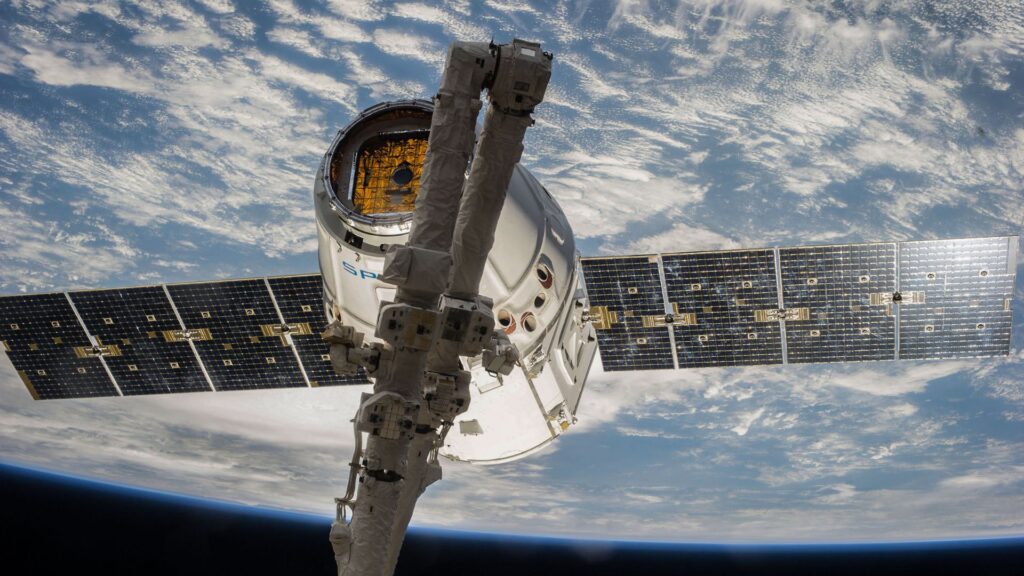

Chrystel Erotokritou
Space & Connectivity


In 1957, the Soviet Union launched Sputnik 1, the first artificial satellite into space. Four years later, Russian astronaut Yuri Gagarin became the first human to orbit around the Earth. At the same time, the start of humanity’s journey into space opened a Pandora’s box of legal questions on how to regulate activities conducted thousands of kilometres above our planet, and how to apportion blame and liability in case things do not go as planned.
The body of law governing space-related activities, also called “Space Law”, was until recently primarily made up of five international treaties negotiated under the auspices of the United Nations. The Outer Space Treaty of 1967 governs the activities of States in the exploration and use of outer space, including the Moon and other celestial bodies. The Rescue Agreement of 1967 lays down principles on the rescue of astronauts, the return of astronauts, and the return of objects launched into outer space. The Liability Convention of 1972 establishes mechanisms for international liability for damage caused by space objects. The Registration Convention of 1974 provides rules for the registration of objects Launched into Outer Space. The Moon Agreement of 1979 puts in place rules governing the activities of states on the Moon and other celestial bodies. Additional guidelines, principles, and declarations were drawn up by the United Nations Committee on the Peaceful Uses of Outer Space (UN COPUOS) and the International Telecommunications Union (ITU).
The Liability Convention governs that a launching State shall be absolutely liable to pay compensation for damage caused by its space objects on the surface of the Earth or to aircraft, and liable for damage due to its faults in space. The Convention also provides for procedures for the settlement of claims for damages. As of today, the Liability Convention has been ratified by 98 UN Member States. From the beginning of the space race to the end of the Cold War, space programs were largely dominated by the monopoly of governmental programmes. As technological developments proliferated and the costs of access to space lowered, an increasing number of private actors have joined the space industry over the past three decades. Despite the fact that more than 50 years have passed since the adoption of the Liability Convention and half of all countries worldwide abide by this Treaty, at present, the question arises as to whether this international agreement remains an adequate legal tool to address liability issues of private space actors.
With the objective of equipping the United Kingdom with targeted mechanisms to enable the space industry to flourish while setting up appropriate liability limits for the different missions of satellite operators in case of a serious incident, the UK Space Agency is launching a public consultation on liability limits for orbital operations. The UK Space Agency is proposing to move away from the current ‘one-size-fits-all’ approach of a flat-rate amount of GBP 60 million liability limit, and instead establish variable but fair liability limits for the different missions of satellite operators. The UK Space Agency is striving to create different categories and thresholds based on the level of risk of each space mission. The proposed categories are: (1) GBP 50m budget missions; (2) CubeSat; (3) Constellation; (4) Earth Observation missions; and (5) GEO missions.
The consultation points are divided in three sections. Section 1 touches upon matters to address in the shorter term, including the need to set liability limits for orbital operations, alternative insurance models, and other policy proposals. Section 2 offers an overview of policy issues influencing the proposed variable liability limit approach. Section 3 deals with the longer-term UK Leadership on Space Sustainability. As the UK aims to position itself as a leader in space sustainability, specific insurance mechanisms for end-of-life and re-entry stages of missions along with potential reductions in licensing fees are being examined for the operators that follow them.
This UK’s initiative to create its own internal rules could set up a competitive stage by offering enhanced licensing, insurance, and financing frameworks to the ever-evolving space sector and inspire other jurisdictions to follow this trend. Responses shall be submitted by 7 December.
Access Partnership is closely following space law developments. If you need support in submitting your views to the UK Space Agency, please reach out to Sofia Stellatou at [email protected] or Chrystel Erotokritou at [email protected].

